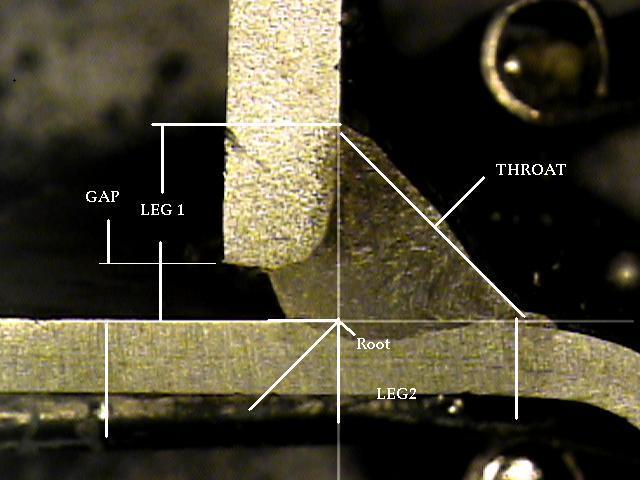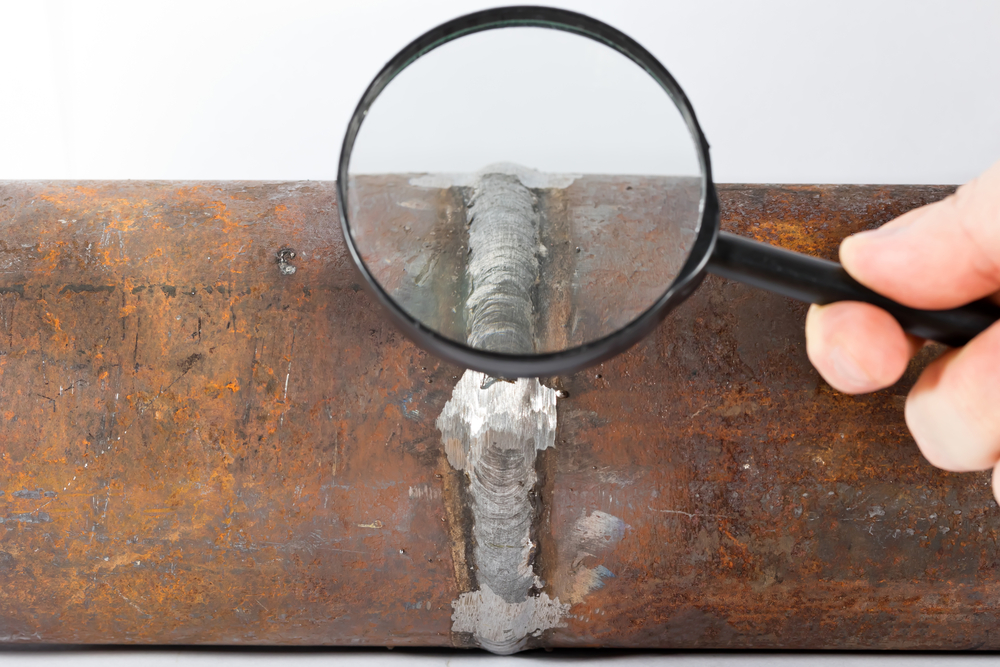How to Ensure Quality with Welding Inspection Gilbert Arizona: Best Practices
How to Ensure Quality with Welding Inspection Gilbert Arizona: Best Practices
Blog Article
The Effect of Rigorous Welding Examination on Industry Specifications: Encouraging Safety And Security, Integrity, and Compliance Across Different Fields
The function of rigorous welding evaluation is increasingly acknowledged as a vital part in boosting market standards, where integrity, security, and conformity take priority throughout diverse markets. By ensuring conformity to established guidelines, such as those set forth by AWS and ISO, these examinations not only reduce dangers but likewise grow a feeling of liability amongst professionals. Nevertheless, as markets progress and encounter brand-new challenges, the implications of these practices may extend beyond simple compliance. What improvements might we expect in welding methods as the need for top quality and safety and security heightens?
Value of Welding Evaluations
Recognizing the vital role of welding evaluations in maintaining top quality and security criteria, market specialists prioritize these evaluations to make certain structural honesty. Welding examinations act as an important checkpoint in the construction procedure, recognizing flaws that could jeopardize the sturdiness and safety of welded frameworks. By systematically assessing welds, inspectors can discover concerns such as insufficient penetration, porosity, and cracks, which might not show up to the naked eye.
The significance of these evaluations extends past simple compliance; they are important for guarding lives and shielding financial investments. In vital markets such as manufacturing, building and construction, and aerospace, a single malfunctioning weld can result in catastrophic failures, resulting in both economic loss and human casualties. Therefore, implementing rigorous inspection procedures reduces these threats and improves general task integrity.
Furthermore, constant welding evaluations promote a society of high quality across organizations, encouraging welders to abide by ideal methods and keep high criteria in their work. This dedication to quality not just boosts functional efficiency yet additionally enhances the credibility of business within their corresponding fields. Hence, welding inspections are important in promoting safety, integrity, and conformity throughout various industries.
Key Industry Criteria and Regulations
The framework of welding inspections is underpinned by a robust collection of market requirements and regulations that control practices throughout different industries. Key organizations, such as the American Welding Culture (AWS) and the International Company for Standardization (ISO), develop guidelines that ensure top quality and security in welding procedures. AWS D1.1 outlines crucial needs for welding steel structures, while ISO 3834 defines high quality needs for combination welding.
Along with these particular requirements, industry laws like the American National Criteria Institute (ANSI) and Occupational Security and Health And Wellness Administration (OSHA) mandates further improve conformity by establishing safety procedures and functional ideal techniques. These laws are critical in industries such as production, building and construction, and aerospace, where welding integrity is paramount.
In addition, sector-specific requirements, such as those from the American Culture of Mechanical Engineers (ASME) for pressure vessels, give added layers of examination to make sure that welds meet rigid safety and security and performance standards. Adherence to these standards not only promotes governing compliance however likewise fosters a society of top quality and dependability throughout the welding industry, inevitably safeguarding public well-being and enhancing functional efficiency.

Advantages of Conformity and Integrity
Regularly adhering to sector criteria and laws in welding examinations yields considerable benefits, enhancing total dependability and efficiency. The primary advantage is the guarantee of quality in welded joints, which directly adds to the safety of structures and equipment. Conformity with well-known criteria minimizes the risk of failure and disastrous incidents, thus securing both human life and important properties.
Furthermore, organizations that prioritize extensive welding evaluations foster a society of responsibility and professionalism and reliability. This commitment not only bolsters the credibility of the firm however also infuses confidence in customers and stakeholders regarding the integrity of items and solutions. Dependable welding procedures result in minimized expenses related to rework, repair work, and prospective legal obligations originating from subpar workmanship.
Furthermore, preserving compliance with market requirements assists in smoother governing communications, as companies can conveniently show adherence to necessary methods (Welding Inspection Gilbert Arizona). This positive method can lead to helpful collaborations and chances within the market, in addition to access to new markets
Challenges in Welding Inspection
Navigating the intricacies of welding examination presents a myriad of obstacles that can hinder conformity with sector requirements. One significant challenge is the variability in examination strategies and modern technologies. Various fields might use varied methods, causing inconsistencies in the evaluation of weld quality. The lack of standard training for assessors can result in diverse analyses of assessment criteria, which may endanger safety and dependability.
An additional challenge exists in the availability of advanced examination devices - Welding Inspection Gilbert Arizona. While technologies such as ultrasonic screening and radiography can enhance discovery capacities, their execution might be restricted by cost or accessibility, particularly in smaller sized procedures. This variation can result in a reliance on less effective inspection techniques, enhancing the threat of like this unseen imperfections
Additionally, the busy nature of contemporary production frequently stress inspectors to focus on speed over thoroughness, possibly ignoring crucial flaws. Last but not least, regulatory compliance can be daunting as a result of the evolving nature of market requirements, leaving companies battling to stay on top of the current needs. These difficulties demand constant renovation in examination practices to ensure the integrity of bonded frameworks across various industries.
Future Trends in Welding Practices
Emerging technologies and advancing techniques are established to transform welding practices in the coming years. Developments in automation, such as robotic welding systems, are acquiring traction, enhancing precision and effectiveness while reducing human error. These systems will not only quicken manufacturing yet also help with regular top quality control, attending to a few of the obstacles encountered in hands-on welding.
Additionally, the integration of expert system (AI) and device discovering into welding processes is poised to reinvent evaluation and monitoring. Real-time data analytics will make it possible for predictive maintenance, permitting positive interventions that lower downtime that site and boost security. Additionally, enhanced reality (AR) and digital truth (VIRTUAL REALITY) modern technologies are becoming important in training welders, offering immersive experiences that improve skill advancement without the threats linked with traditional approaches.
Sustainability is additionally a key fad, as markets seek greener practices. The adoption of environment-friendly materials and methods, together with energy-efficient machinery, will likely become basic. As industries adjust to these modifications, the focus will certainly move toward higher compliance with security and environmental policies, making sure that welding methods not only satisfy present standards click over here however additionally lead the way for a much safer and even more lasting future.

Final Thought
In verdict, rigorous welding evaluations dramatically enhance market criteria by ensuring security, integrity, and compliance throughout different industries. By systematically determining issues and adhering to developed standards, these assessments mitigate threats connected with architectural failings. The promotion of responsibility among welders leads to better results, cultivating trust fund within communities. As industries remain to prioritize operational stability, the value of complete examinations will only enhance, eventually profiting businesses and society at big.
The duty of extensive welding inspection is increasingly recognized as an essential component in improving market requirements, where conformity, integrity, and safety and security take priority throughout diverse markets. Hence, welding assessments are essential in promoting safety and security, reliability, and compliance throughout numerous sectors.
Key institutions, such as the American Welding Culture (AWS) and the International Organization for Standardization (ISO), establish guidelines that make sure top quality and safety in welding operations. AWS D1.1 lays out important needs for welding steel frameworks, while ISO 3834 specifies high quality needs for fusion welding.
In verdict, extensive welding assessments considerably enhance sector requirements by making certain security, reliability, and conformity across various fields.
Report this page